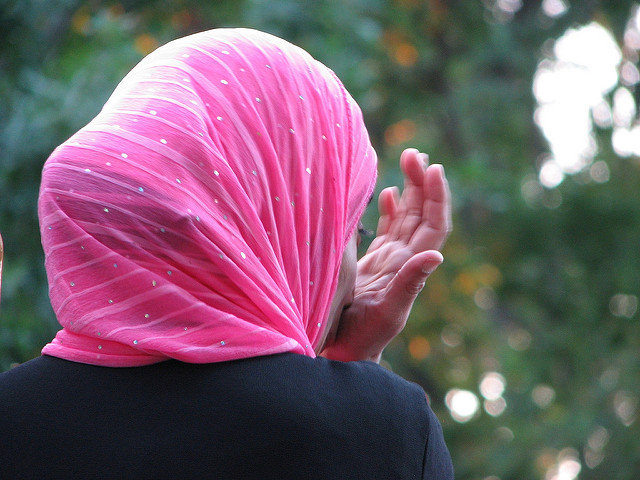
RNA - When controversy over a proposed mosque swept David Baker’s community last year, the Mukilteo middle-schooler decided to take action. A mailing by a local man suggested the mosque might make residents less safe. But Baker, an interfaith activist, disagreed.
“I was thinking that it (the mosque) would actually promote diversity, would help people learn about Muslims and lower Islamophobia,” says Baker, 13, who is Christian. “So my mom and dad suggested I write a letter to the editor, and I did, and it got posted in the paper.”
The letter in the Mukilteo Beacon opened with, “The fears that people have about Muslims are untrue and hurtful” and argued that many Americans need to go beyond their often false assumptions about Islam.
Now Baker is using his experience to help other youth in our region speak out. He’ll be participating in, and speaking at, a four-hour workshop to help middle- and high-school students use the media to fight Islamophobia in their own communities.
For Muslim youth, it’s an opportunity to “personalize their experiences as Muslims,” says Jordan Goldwarg of Kids4Peace, which is co-facilitating the event with the newly formed American Muslim Empowerment Network (AMEN). “For non-Muslim youth, it’s an opportunity to talk about their experience with American Muslims.”
The workshop, at Seattle University on Sunday, Jan. 15, will encourage youth to tell their own stories about Islam and American Muslims. They will then pitch these stories to the media as opinion pieces and letters to the editor.
The idea comes after a year that has a seen a surge in hate crimes against Muslims and in the wake of an election featuring anti-Muslim rhetoric. According to the FBI, there was a 67 percent increase in incidents just between 2014 and 2015.
“It’s really easy to demonize a minority that you don’t know or understand,” says Aneelah Afzali of the American Muslim Empowerment Network and a lawyer who recently left her profession to focus on community work. Afzali says only 38 percent of Americans know someone who is Muslim.
She believes lack of exposure, combined with heavy media coverage of terrorism, can lead to dangerous misperceptions about her faith.
It’s a reality 18-year-old Ahlaam Ibraahim knows all too well. The University of Washington student says she regularly has to defend her religion to people who misunderstand it.
Sometimes that misunderstanding comes in the form of insensitive comments or jokes from classmates. And sometimes it’s more aggressive, like the man who shouted at her to “go back to Saudi Arabia” (a country she has no connection to).
That incident occurred at last year’s Anti-Islamophobia Day — an event she co-founded after the killings of three Muslim students in Chapel Hill, N.C.
“My beliefs are attacked every day,” says Ibraahim, who suggests that people who have little exposure to Islam “talk to a Muslim or go to a mosque.”
Storytelling that emphasizes and encourages contact, interaction and humanization is what next weekend’s workshop is all about.
The first hour will focus on the problem of Islamophobia, featuring speakers who have experienced it firsthand. The rest of the day will feature storytelling workshops with writing coaches who will help young people communicate their own experiences with Islam or as Muslims.
The day will close with a youth-held news conference for local media.
“Being a Muslim youth in 2017 is really unique,” says Ibraahim, who will be a writing coach at the workshop, “and some day their stories will be taught in the classroom.”
Baker hopes so but worries that attitudes will have to change for American Muslims to be fully accepted into U.S. society and culture.
“What happen to the great American melting pot?” he wrote, closing out his letter to the editor. “Are we going to let them in and remember what our country was founded on, or are we going to succumb to fear …”
847/940